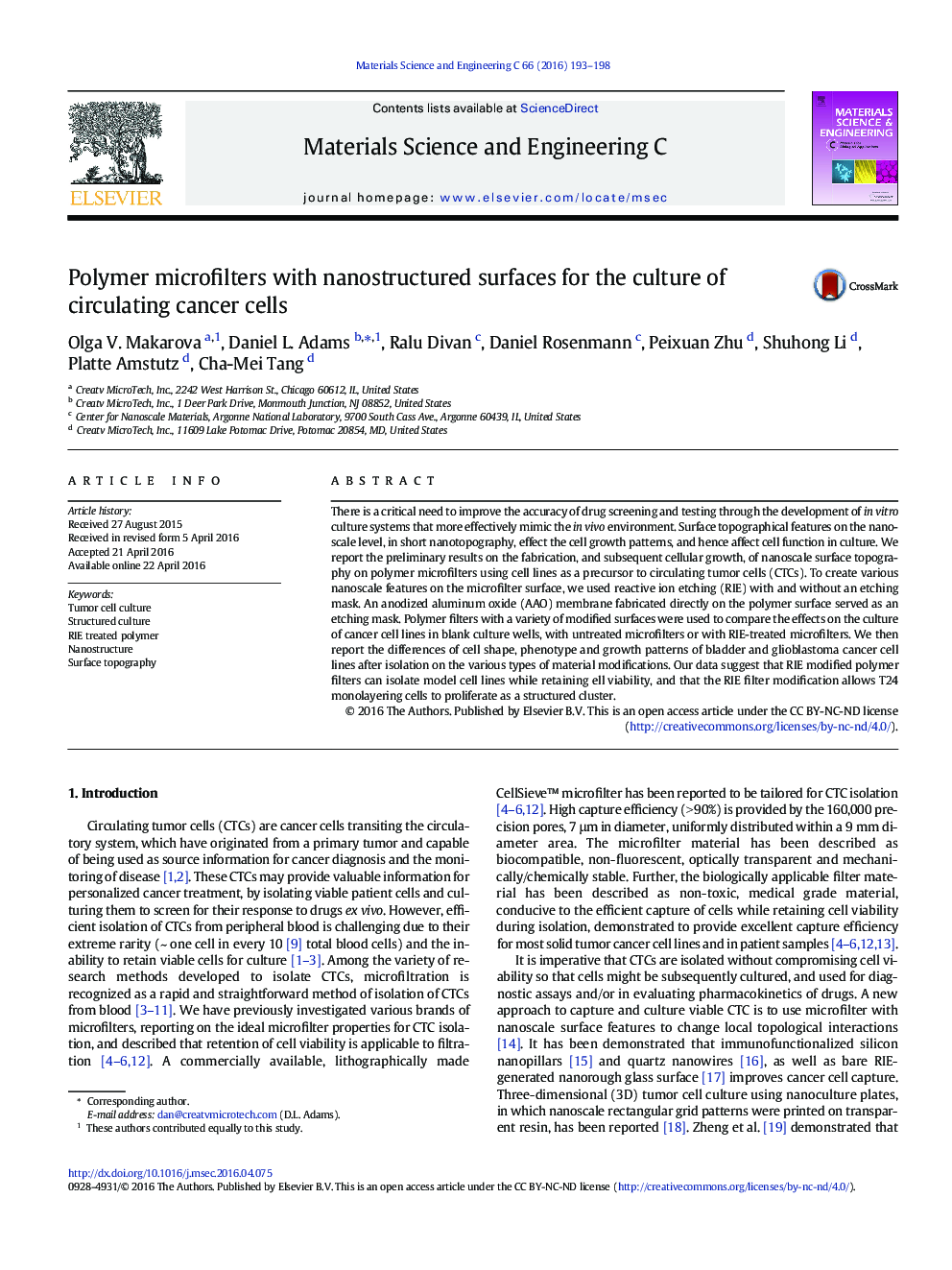| Article ID | Journal | Published Year | Pages | File Type |
|---|---|---|---|---|
| 7867132 | Materials Science and Engineering: C | 2016 | 6 Pages |
Abstract
There is a critical need to improve the accuracy of drug screening and testing through the development of in vitro culture systems that more effectively mimic the in vivo environment. Surface topographical features on the nanoscale level, in short nanotopography, effect the cell growth patterns, and hence affect cell function in culture. We report the preliminary results on the fabrication, and subsequent cellular growth, of nanoscale surface topography on polymer microfilters using cell lines as a precursor to circulating tumor cells (CTCs). To create various nanoscale features on the microfilter surface, we used reactive ion etching (RIE) with and without an etching mask. An anodized aluminum oxide (AAO) membrane fabricated directly on the polymer surface served as an etching mask. Polymer filters with a variety of modified surfaces were used to compare the effects on the culture of cancer cell lines in blank culture wells, with untreated microfilters or with RIE-treated microfilters. We then report the differences of cell shape, phenotype and growth patterns of bladder and glioblastoma cancer cell lines after isolation on the various types of material modifications. Our data suggest that RIE modified polymer filters can isolate model cell lines while retaining ell viability, and that the RIE filter modification allows T24 monolayering cells to proliferate as a structured cluster.
Keywords
Related Topics
Physical Sciences and Engineering
Materials Science
Biomaterials
Authors
Olga V. Makarova, Daniel L. Adams, Ralu Divan, Daniel Rosenmann, Peixuan Zhu, Shuhong Li, Platte Amstutz, Cha-Mei Tang,
